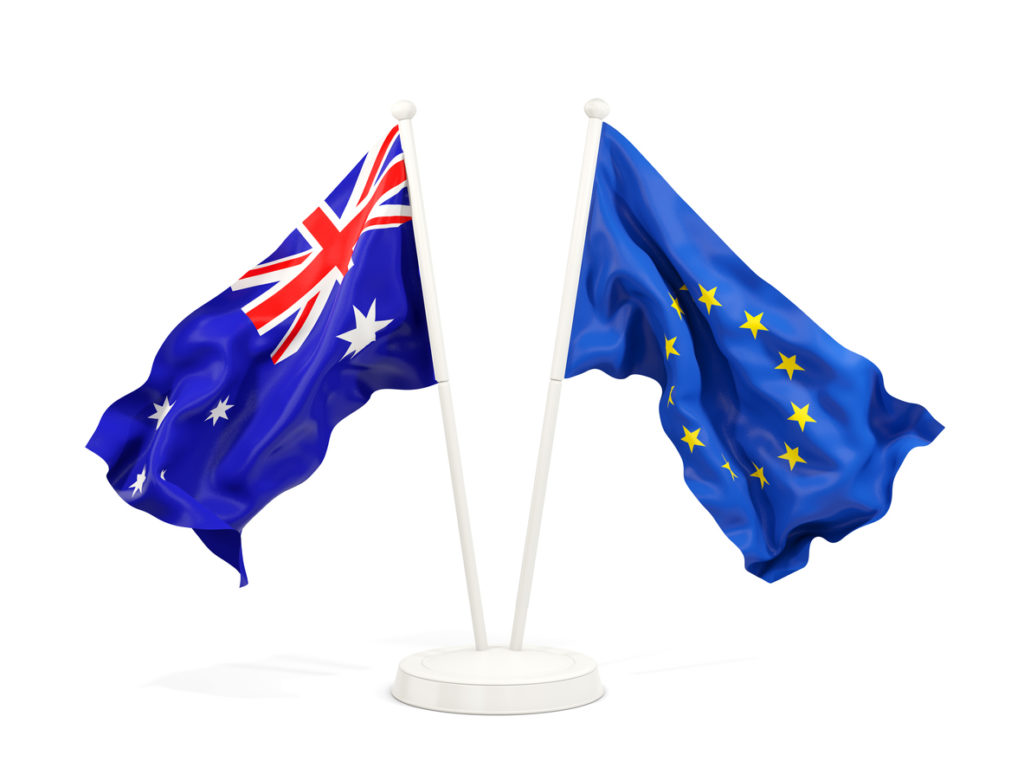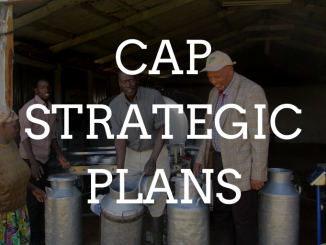
After years working towards clinching a free trade deal between Australia and the EU, talks went ‘down under’ on Sunday (29 October) in Osaka after the two sides beefed over market access for agricultural products. So what happened – what’s the beef between these two? -and what does the UK have to do with the dramatic turn of events? Natasha Foote reports.
The free trade deal, which has been in the works since May 2018, has hit several road bumps on the way, with talks paused in 2021 after relations soured between Australia and France over a failed submarine contract.
Then, just as there seemed to be light at the end of the tunnel, Australian Trade Minister Don Farrell walked away from the negotiating table back in July after disagreements over market access. But, after a concerted negotiating effort from both sides, hopes were high that a deal would finally be sealed in Osaka.
In fact, with the bubbly on ice, the Commission even flew out EU Agriculture Commissioner Janusz Wojciechowski alongside a 10-person strong team ready for celebratory photos – which ended instead with a sad evening saki session in Osaka, according to a Commission source.
“It honestly came as a total shock,” the source told ARC, adding that there were “no signals” that the deal was heading south.
Meanwhile, an EU official reiterated that the Commission was “in a state of shock” and “a bit stunned” by the turn of events, adding they saw these talks as the “endgame”.
Negotiators were just as despondent on the Australian side, with chief negotiator Farrell pointing out he came to Osaka “with the intention to finalise [the] free trade agreement”.
So, why the dramatic turn of events?
As is often the case with free trade deals, talks fell on agricultural issues – namely, greater market access for Australia’s sheep meat and beef producers. As such, agriculture lobbies on both sides of the coin have been heavily invested in the negotiations, heaping pressure on decision-makers.
Back in October, Australian farm industry groups – who since commended Minister Farrell for “not throwing Australian farmers under the bus” – called on the government to not sign the “dud deal” unless it offered much greater market access for Australian agricultural products.
But such a move has been met with staunch opposition, namely from livestock powerhouses Ireland and France.
In efforts to appease Australia – one of the world’s largest agricultural exporters – the EU put a new offer on the table back in May on the “most sensitive agricultural products”, according to a Commission source, who called this offer both “genuinely commercially meaningful” and “economically and politically sustainable”.
“We know for a fact that Australia is interested in those products, but the mere fact that those are sensitive things within the EU does not automatically translate into the Commission aligning […] particularly for agricultural goods. So what we put on the table was genuinely a stretch,” the source said.
But the move failed to impress down under.
“What was on offer […] would have locked our farmers in at a disadvantage to competitors in New Zealand, Canada and South America,” the Australian National Farmers Federation wrote in a statement following the collapse of the talks.
Why now?
So, with light at the end of the tunnel, why did this trade deal collapse so spectacularly at this moment?
It is first worth noting that these discussions are taking place under the Spanish presidency, with trade negotiations – namely Mercosur – in the spotlight. Just as with the Australia deal, red meat is also a main bone of contention within the Mercosur discussions, which does “not make it easier to to move the needle in talks with Australia,” an EU official pointed out.
But this is not the only trade deal that may have swayed the direction of discussions, which took place just as a deal between Australia and the UK – which very generously opens up market access for Australian agricultural products – came into force in May.
This may have emboldened Australian farmers to push for a more favourable deal, stakeholders pointed out.
“The UK offered up a crazy generous market to the Australians – maybe this is what encouraged farmers to push so hard ahead of the final talks,” a Commission source suggested.
Meanwhile, the impact of the UK-AUS trade deal can also be keenly felt on the EU side.
“The entry into force of the Australia-UK agreement […] means that a number of traditional EU exporters into the UK, for example from Ireland when it comes to beef, will start feeling that competition very, very strongly,” an EU official explained.
These “unbelievably generous terms” for market access into the UK for red meat products will “of course then displace EU exports that were going to the UK and that will need to find other outlets”.
This led to the EU having “less room for manoeuvre” in these sectors, the official added.
What next?
Despite the rollercoaster of the past few days, the EU stands ready to continue negotiations, according to a Commission spokesperson. “Our door is still open,” he said.
“We are ready to negotiate when the other side is also ready,” he stressed, adding that it “takes two to tango”. However, there is currently no timeline envisaged.
Likewise, Australian chief negotiator Farrell said in a statement that “negotiations will continue”. “I am hopeful that one day we will sign a deal that benefits both Australia and our European friends,” he said.
However, a Commission source warned that, if talks do not resume soon, the deal is a “dead duck”. “If we can’t find some middle ground now, honestly don’t see a way forward for this deal,” they said.
Meanwhile, as both the EU and Australia face upcoming elections – in 2024 and 2025, respectively – amid the rise of the far right, sources agree that the chances of tangoing before the elections seems close to zero.
One other game-changer could be a long-awaited cumulative impact assessment from the Commission’s DG AGRI. The study, which was originally pencilled for April 2023 but has been repeatedly pushed back, is set to evaluate the impact of trade deals on the EU agricultural sector.
This is unlikely to facilitate discussions about Australia in the coming months, an EU official pointed out.
More on EU and Trade
A Sustainable Food System Law Paving the Way for an Ambitious CAP Reform
A Frugal Farm to Fork – Update on Pesticides, new GMOs, Animal Welfare & Sustainable Food Systems
Rural Japan | Agroecology, Diversification and Digitalisation on Hashimoto Family Farm





